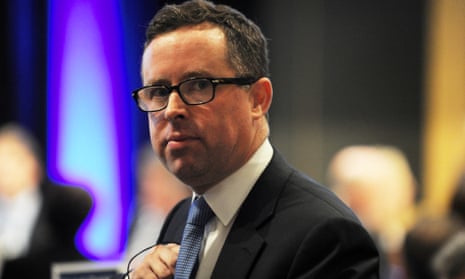Political debate has focused on whether Qantas has changed its tune about the impact of an “unrecovered” $106m carbon tax bill on its current financial difficulties – a tax bill the government insists is a direct “hit” on Qantas and its workers.
But on closer questioning it turns out Qantas does not have a $106m “unrecovered” carbon tax bill at all.
According to a spokesman, Qantas recovered all of that $106m through the ticket surcharge it imposed at the time of the carbon tax introduction. The net effect of the carbon tax itself on the airline’s bottom line was therefore zero. Qantas maintains the sum is “unrecovered” because its ticket prices have fallen by more than the surcharge due to the fierce capacity war it is waging with arch rival Virgin.
But the chairman of the Australian Competition and Consumer Commission, Rod Sims, has suggested that if the carbon tax is repealed, airlines such as Qantas are also likely to be forced to remove the surcharges they are levying to pay for it – which would mean the airline’s bottom line would be no better off after repeal.
Qantas’s chief executive, Alan Joyce, said this week “the carbon tax has been a big cost for us. It’s $106m last year. It’s going to be over that again this year. And it is absolutely one of the factors that is impacting the airline.”
The Qantas website says “when the carbon price was introduced, Qantas added a small surcharge to domestic fares to reflect the impact on our cost base and attempt to recover some of that cost. Since 1 July 2012, this cost recovery has been unsustainable due to the challenging conditions in the Australian aviation industry. The table below indicates the estimated impact of the carbon price on Qantas per passenger, per sector, rather than any additional revenue we are collecting,” it says above a table showing a surcharge of between $1.93 and $7.25 depending on the length of the flight.
Sims, who is charged by the government with ensuring the carbon tax repeal is passed through to consumers, said that “as a general rule” any surcharges imposed due to the carbon tax should be removed once the tax was abolished.
“We would have to look at the individual circumstances but we would assume that any surcharge imposed because of the tax would come off. We will engage with airlines to work out the details of their situation,” he told Guardian Australia.
Tony Abbott told the house of representatives on Thursday the government was seeking to repeal the tax because “the carbon tax has been a $106m hit on jobs at Qantas in the last financial year and a $58m hit on jobs at Qantas in the current half year. That’s the truth.”
And on Wednesday he said: “Just so that members of this house should know what the situation is, Qantas has today put out a statement to say: we have said that the price on carbon is a cost to our business that we have not been able to recover through fare increases … So there we have it: the carbon tax is a drag on Qantas that it does not need. It is a $106m hit on jobs at Qantas. We will get rid of the carbon tax, but the leader of the opposition wants to leave this $106m-a-year hit on Qantas in place.”

Comments (…)
Sign in or create your Guardian account to join the discussion